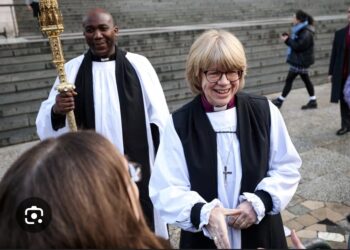 A Federal High Court Abuja on Thursday, adjourned until April 30, a suit seeking the sack of Senate President, Bukola Saraki , Speaker, House of Representatives, Yakubu Dogara and 52 other lawmakers.
A Federal High Court Abuja on Thursday, adjourned until April 30, a suit seeking the sack of Senate President, Bukola Saraki , Speaker, House of Representatives, Yakubu Dogara and 52 other lawmakers.
An advocacy group, Legal Defence and Assistance Project, (LEDAP) dragged the lawmakers to court seeking a declaration that they were no longer members of the National Assembly having defected to other political parties before the expiration of their tenure.
The defendants comprise 17 Senators, 37 members of the House of Representatives, the Independent National Electoral Commission, the Attorney-General of the Federation and the clerks to both houses.
At the resumed hearing, when parties were called to make their submissions, counsel to LEDAP, Mr Jubrin Okutepa, SAN, argued that the case of whether a politician who moved from one party to another should retain his /her seat had been decided by the Supreme Court.
Okutepa maintained that the defendants said they defected because there were divisions and crises in their political parties.
He, however, urged the court to note that the fact of the defection had been admitted and what remained was for the court to determine if the defection was justified inline with decisions of the Supreme Court.
“There is nothing before this court to show that the respective parties upon which the 2nd to 55th defendants were elected before they jumped ship to other political parties, were infested with the virus of division known to law for them to retain their seats at the National Assembly.”
On the defendants’ claim that the plaintiff lacked the locus standi to institute the suit, Okutepa held that LEDAP was incorporated to promote constitutionality and rule of law and was therefore a juristic person and had the locus to file the motion.
For his part, Mr Mahmud Magaji, (SAN) counsel to Saraki and the other senators, argued that LEDAP was not part of the persons referred to in Section 40 of the 1999 Constitution and so, they lacked the locus standi to file the suit.
“They are not a registered political party so they are not protected by the section and there is nothing before the court to show otherwise.
” It is also clear that they did not sponsor anyone for any election and they have not exhibited their membership card of any political party or evidence of voter card.”
He maintained that the plaintiffs were only advocates of public interest rights and had not placed sufficient evidence before the court to enable the court entertain the matter.
Magaji further submitted that the issue of division was still lingering in the All Progressives Congress, (APC)both at the state and national level as was recently displayed in Rivers.
Magaji urged the court to decline jurisdiction adding that the plaintiffs had not disclosed any reasonable cause of action.
Mr Josh Amupitan, SAN, counsel to Dogara and other members of the house of representatives, for his part, submitted that the plaintiff had failed to prove its case.
He argued that according to Section 68(2) of the constitution which the plaintiff premised its case on, it was only the Senate President and the Speaker that could declare seats at the National Assembly vacant.
He added that where powers had been given an institution, the only reason one could involve the court was where such an institution had been asked to exercise the powers but refused to.
He said that there was nothing placed before the court to show that the plaintiff had written to the senate president and the speaker asking them to declare the said seats vacant and they declined.
Speaking on the issue of defection, Amupitan argued that the plaintiff had placed nothing before the court to prove that the defendants actually defected.
“The story is that they defected on the floor of the house, but the votes and proceedings of the senate and the house of representatives where the defection took place is not before the court to prove this.”
Amupitan further submitted that the powers to monitor political parties or determine their activities was statutory vested on the Independent National Electoral Commission (INEC) and not any non governmental organization as clearly stated in the Electoral Act.
” If the court allows this type of proceedings under public interest litigation, the court will be over reaching the institutions vested with such responsibilities and the court will be building a litigation industry which we can never recover from,” he submitted.
The trial judge, Justice Okon Abang stopped the proceedings at this point since it had been on for over four hours.
The judge adjourned the matter until April 30 for counsel to conclude arguments and assured that justice will be served and timely too since it was a constitutional matter of national importance.
LEDAP had in a suit filed on Sept. 14, 2018, prayed the court for an interpretation of Section 68(1)(g) of the 1999 Constitution.
This was with regards as to whether any member of the National Assembly who resigns from the political party that sponsored his election before the expiration of the term for which he was elected, automatically loses his seat in the national assembly.
The group was also seeking a declaration that the lawmakers were no longer entitled to receive any remunerations due to a member of the National Assembly and that any of such remunerations after their date of defection be refunded to the Federal Government.
LEDAP in the suit, also prayed the presiding members of the National Assembly to declare vacant, the seats of the defectors.












